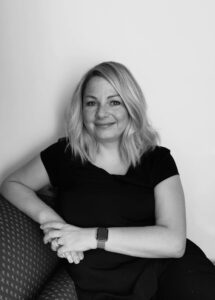Our Team

Clinical Psychologist
Dr Rachel Megahy
Rachel is a highly experienced clinical psychologist with over 19 years of clinical experience. She is a warm compassionate therapist who always works with clients to reduce their experience of psychological distress. She strives to work with clients to build a shared understanding of their difficulties, and build an individualised treatment plan based on their needs. She feels it’s important to provide a safe, trusting, and welcoming environment, and she will always do her best to put clients at ease.
Experience
Rachel has worked as a psychologist within the NHS since 2001. Currently, she works part-time in her NHS role which specialises in eating disorders and obesity/bariatric surgery; and part-time in private practice. Rachel specialises in working with individuals suffering from eating disorders (including anorexia nervosa, bulimia nervosa, and binge eating disorder) and those who have experienced psychological trauma, including childhood sexual abuse and post-traumatic stress disorder. Rachel draws on a wide range of psychological models and evidence-based therapies to tailor-make an intervention best suited to the needs of each individual client. She utilises many different therapeutic approaches, including Cognitive Behavioural Therapy (CBT), enhanced CBT for eating disorders (CBT-E), Interpersonal Psychotherapy (IPT), Eye Movement Desensitisation, and Reprocessing (EMDR), and Schema Therapy.
Qualifications
Rachel gained both her Bachelor of Science degree (BSc Hons) in Psychology and her Doctorate in Clinical Psychology (DClinPsy) from The University of Edinburgh. Rachel has Chartered Psychologist status from the British Psychological Society (BPS), which reflects the highest standard of psychological knowledge and expertise. She is also a member of the Health & Care Professions Council (HCPC) and IPT-UK. She is an experienced supervisor and regularly supervises other professionals and trainee clinical psychologists.
Publications
Thomson, R & McKenzie, K. “What people with a learning disability understand and feel about having a learning disability”. Learning Disability Practice, 2005, p28.
